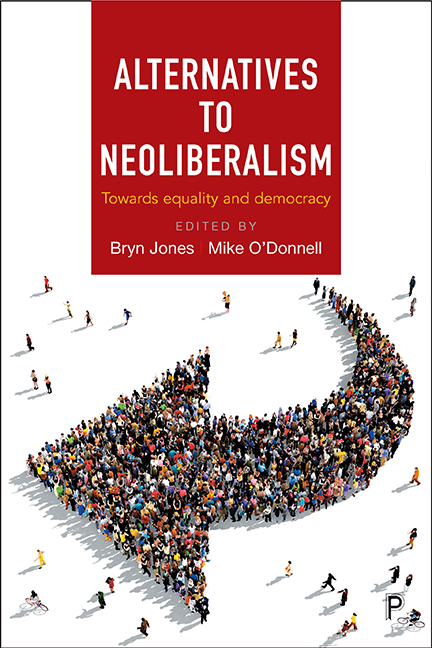Book contents
- Frontmatter
- Dedication
- Contents
- List of figures, tables and boxes
- List of abbreviations
- Notes on contributors
- Acknowledgements
- Foreword
- Editors’ preface
- Introduction: The open-market society and its opponents: an overview
- Part One Alternative paradigms and perspectives
- Part Two Reform within economic and governance restraints: pushing the boundaries
- Part Three Economic and political democracy: restoring the market-civil society balance
- Conclusion: A Brexit from neoliberalism?
- Index
Conclusion: A Brexit from neoliberalism?
Published online by Cambridge University Press: 05 April 2022
- Frontmatter
- Dedication
- Contents
- List of figures, tables and boxes
- List of abbreviations
- Notes on contributors
- Acknowledgements
- Foreword
- Editors’ preface
- Introduction: The open-market society and its opponents: an overview
- Part One Alternative paradigms and perspectives
- Part Two Reform within economic and governance restraints: pushing the boundaries
- Part Three Economic and political democracy: restoring the market-civil society balance
- Conclusion: A Brexit from neoliberalism?
- Index
Summary
Introduction
[W]hen neoliberalism fell apart in 2008 there was … nothing. This is why the zombie walks. The left and centre have produced no new general framework of economic thought for 80 years. (The Guardian, 2016)
Despite 40 years of neoliberal application, the UK economy is failing to meet basic human needs in economic security, health, shelter and sustenance for many citizens. The UK economy has massive inequalities in wealth and income, public and private debt, and international trade is based on unaccountable, and undertaxed corporations, many benefiting from exploited labour. As a society, it is riddled with multiple social problems in family and personal relationships and caring responsibilities ‒ problems compounded by a dysfunctional political system and more incrementally, but toxically, by a deteriorating natural environment. A departure from the EU may intensify global competition, deregulation and corporate powers, reduce social safeguards and cosmeticise neoliberal policies behind a mask of xenophobic patriotism. Like the Brexit project, the impending Trump presidency in the USA offers a right wing, nationalist variation on neoliberal economics but, in terms of overall governance, it seems like ‘business as usual’. The tax-cutting, corporate friendly and public-service slashing policies promised will only intensify the neoliberal hegemony - despite multi-billionaire Trump's populist protestations to the contrary. Monbiot rightly says that history shows that ‘it's not enough to oppose a broken system’, and that a ‘coherent alternative’, ‘a conscious attempt to design a new system, has to be proposed’. However, the thrust of the alternatives discussed here goes beyond simply another ‘economic … programme’ (Monbiot, 2016).The scale and depth of neoliberalism requires a social and political, as well as an economic project to challenge and supersede it.
Neoliberalism has dangerously unbalanced the relationships between state, market and civil society, which we describe as a trilateral interdependence. State functions have been marketised and subverted, with economic relationships – based on commodity exchange and maximisation of financial returns – expanded throughout the economy, the public realm and civil society. As Crouch explains, in Chapter Ten, the result is restricted or atrophied democratic and public sector institutions which fail to curb neoliberalism and only accentuate the social stresses inherent in capitalist societies.
- Type
- Chapter
- Information
- Alternatives to NeoliberalismTowards Equality and Democracy, pp. 245 - 266Publisher: Bristol University PressPrint publication year: 2017



